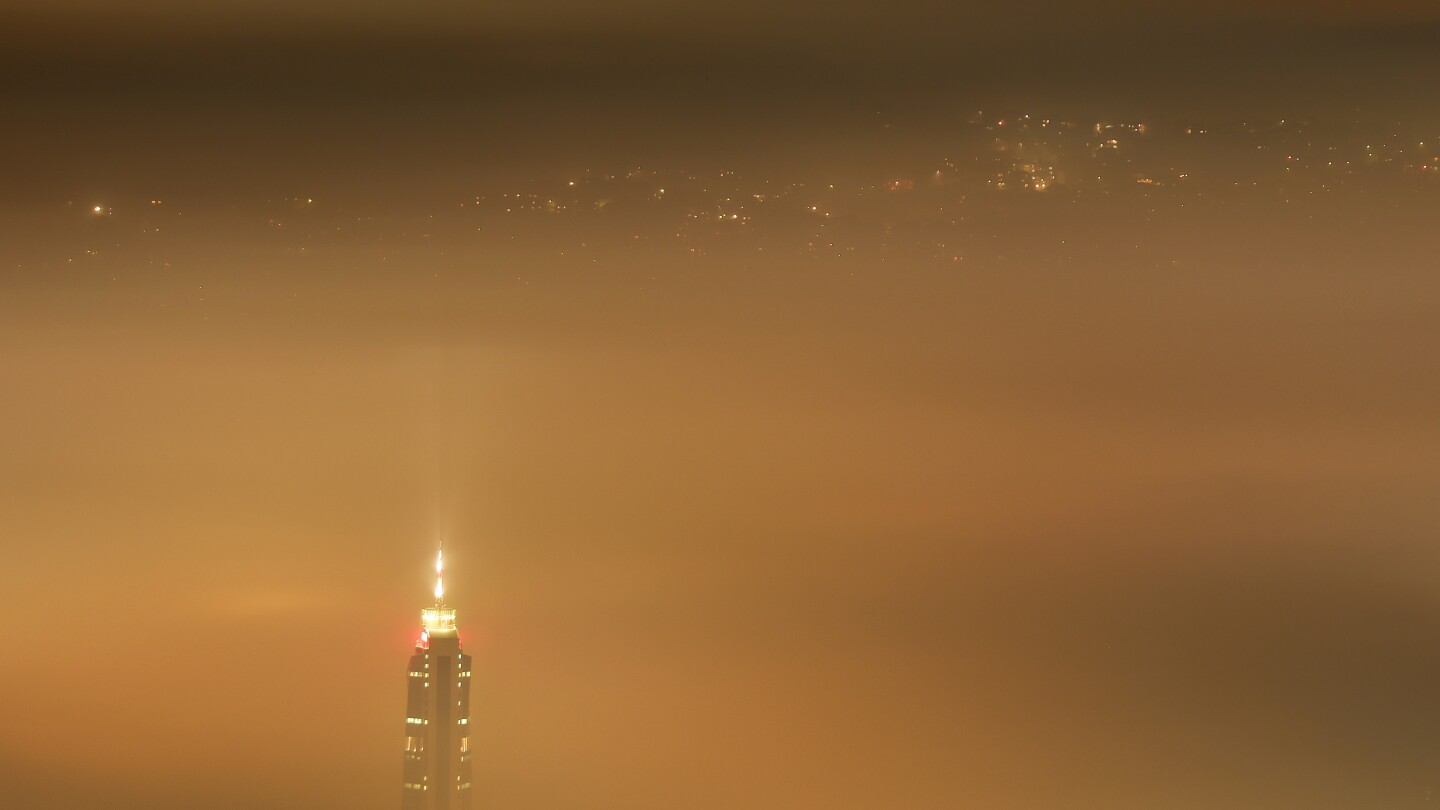SARAJEVO, Bosnia-Herzegovina (AP) — The Bosnian capital of Sarajevo has been intermittently engulfed in a toxic haze since the start of December, with air quality so bad it was placed first on a list of the world’s most polluted cities for a second straight day Wednesday.
The Swiss air quality technology company IQAir, which compiles a real-time list, on Wednesday put Sarajevo’s air quality index, or AQI, at 301, which is in a “very unhealthy” category, followed by 239 in the Indian city of Kolkata.
“I felt like crying this morning because I had to go out and inhale poison to get to work,” said Amra Jaganjac, a Sarajevo resident. “I know that change takes time, but our authorities are too slow and (pollution) is killing us.”
Dangerously high levels of air pollution in winter months have historically been a seemingly intractable problem for Sarajevo, which is squeezed into a deep valley in the mountains.
However, the situation has further deteriorated, with emissions and pollution rising at 3% per year for the last decade due to the proliferation of tall buildings that block airflow, the use of old and highly polluting vehicles and the increased use of coal for heating in the city.
Local authorities have recently recognized air pollution as an acute problem and started taking steps to solve it, including by gradually improving public transport and increasing the number of energy-efficient buildings.
Sarajevo has been included among 100 cities the European Union is helping to reach net-zero emissions by the end of the decade and is currently developing action and investment plans for climate neutrality across all sectors, including energy and transportation, through a process involving the private sector, citizens and research organizations.
High levels of air pollution plague other cities throughout Bosnia due to the country’s reliance on coal and wood for heating and coal for electricity generation.
According to the World Bank, an estimated 3,300 people in Bosnia die prematurely every year from exposure to air pollution, accounting for 9% of the total annual mortality. About 16% of this health burden is carried by Sarajevo and the northwestern city of Banja Luka.

